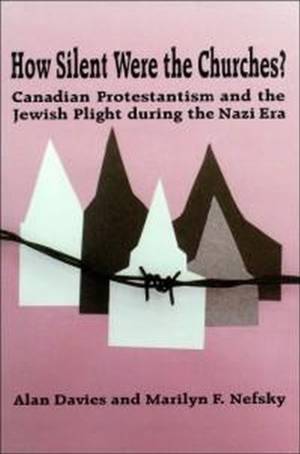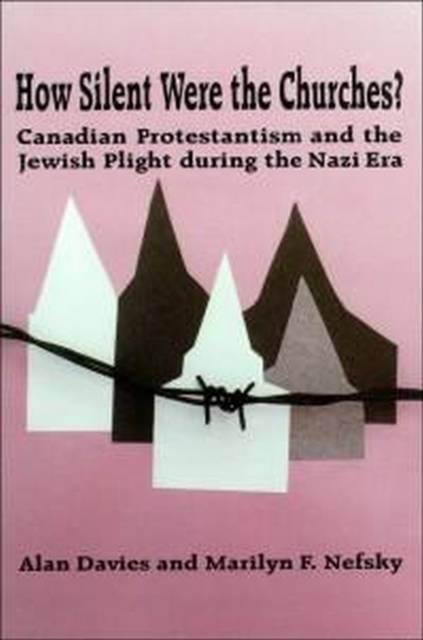
- Retrait gratuit dans votre magasin Club
- 7.000.000 titres dans notre catalogue
- Payer en toute sécurité
- Toujours un magasin près de chez vous
- Retrait gratuit dans votre magasin Club
- 7.000.000 titres dans notre catalogue
- Payer en toute sécurité
- Toujours un magasin près de chez vous
How Silent Were the Churches?
Canadian Protestantism and the Jewish Plight During the Nazi Era
Alan Davies, Marilyn F NefskyDescription
Winner of the 1997 Jewish Book Committee award for scholarship on a Canadian Jewish subject.
Ever since Abella and Troper (None Is too Many, 1982) exposed the anti-Semitism behind Canada's refusal to allow Jewish escapees from the Third Reich to immigrate, the Canadian churches have been under a shadow. Were the churches silent or largely silent, as alleged, or did they speak?
In How Silent Were the Churches? a Jew and a Christian examine the Protestant record. Old letters, sermons and other church documents yield a profile of contemporary Protestant attitudes. Countless questions are raised -- How much anti-Semitism lurked in Canadian Protestantism? How much pro-German feeling? How accurately did the churches of Canada read the signs of the times? Or did they bury their heads in the sand? Davies and Nefsky discover some surprising answers.
The theologies and the historical and ethnic configurations of Protestant Canada, encompassing religious communities from the United Church to the Quakers, are brought into relief against the background of the Great Depression, the rise of fascism in Europe and the resurgence of nativism in Canadian society.
The authors conclude their study with an evaluation of the limits to Protestant influence in Canada and the dilemmas faced by religious communities and persons of conscience when confronted by the realities of power.
Spécifications
Parties prenantes
- Auteur(s) :
- Editeur:
Contenu
- Nombre de pages :
- 195
- Langue:
- Anglais
Caractéristiques
- EAN:
- 9780889203099
- Date de parution :
- 01-01-98
- Format:
- Livre broché
- Format numérique:
- Trade paperback (VS)
- Dimensions :
- 152 mm x 229 mm
- Poids :
- 319 g







